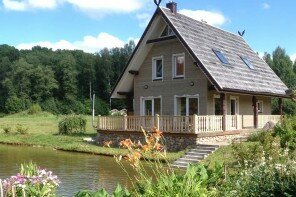
Me at Hiran Minar
Home has never really been a fixed place for me, I am intensely confused by the concept of a ‘hometown’ because I don’t really feel like I have one. My birthplace and early life are cut into fragments by time and oceans. Most newborns go from the hospital to their first home, I went from the hospital to the airport.
I was born at the end of my parents time working as expatriates[1] in New Zealand; flights had already been booked for my family’s return to Australia. My mother had left enough time between my due date and their departure; unfortunately I was nearly a month overdue. There was a scramble to get me a passport, my citizenship was decided by passport processing time, I was made an Australian Citizen as soon as my birth certificate was available. Not five days after my birth I was on a plane leaving my birth country and I have not yet returned. And so I was born into travel.
Since then I have lived in seven different houses, in four different cities, in two different countries, neither of which is the country of my birth. More if you count my time spent living on campus at college and the temporary homes between moves. And while I am sure there are many people who can beat that number significantly I think the number and distance of moves I’ve lived through has affected the way I think about the idea of home.
For the first year of my life we lived in Newcastle. This house witnessed many of my firsts, when I first crawled, when I first stood, the first time I ate baby food, the first time I threw food around instead of eating it. I remember nothing of this house though, at the end of that year we were on a plane headed overseas again. I don’t remember my second home either; it was a Canadian mobile home that someone had assembled in the Pakistan Adventist Seminary Campus, it burnt down due to an electrical fault while we were moving out of it.
My first memory of my own consciousness was in the third home I lived in. It was one of four units; the bottom left, with a veranda looking over a field, a concrete floor, three bedrooms, two air conditioners and a toilet seat with a crack in it that bit you when you sat down.
It was in this home that I split my chin open on the floor, I believe this to be my first memory. This was in a town in the north east of Pakistan called Farooqabad, a name I can say instinctually, but I had to look it up to spell it, and search for it on Google Maps to know exactly where it was. My memories of this home are aural and not written; I was just learning the English alphabet and how to spell simple words before we left. I never learnt how to write Urdu in it’s Arabic script, but there are Urdu words that still roll easily off my tongue. I can say no sir and yes sir, count to ten, and say a couple of other odd words, I hear it all in my head but I can’t even begin to put those sounds onto a page. They are impossible for me to describe with an English alphabet, the sounds are much too foreign for the Roman script.
But to me those sounds seem anciently familiar: the lyrical Arabic call to prayer through crackling speakers, the unique place names that I’ve lost the connection to where they were, the constant sound of vehicle horns in the traffic.

My sister, my mother and me outside our house.
I grew up knowing I was Australian, as opposed to the locals or the other expat families. Both my parents were Australian (although my Dad spent a significant number of his childhood years in Pakistan). It was in this that the concept of home became slippery. When we were in Pakistan we would talk about going home to Australia on furlough[2], but when we were in Australia we would talk about going home to Pakistan. I mirrored this in my College experience, when living about an hour from what had been my home during high-school, I would say I was going home for the weekends and breaks, but when I was in Sydney I called College home. In a way I have come to define home as where I am not.
Sydney has the largest claim on being my home. I have lived here for the longest, albeit in three homes in two different suburbs. I remember when our time in Sydney eclipsed our time in Pakistan. It was an odd feeling, like the importance of the home I knew as my first was being diminished against my will. Not that I wanted to move, my severe shyness meant that any notion of needing to make new friends left me terrified. By all rights Sydney is my home, and I like it here, it’s just that the fragmented landscapes I remember of Pakistan, organic bustling cities, mountains, gardens, ruins, glaciers, mud brick homes with cow pats drying on the outside, open canals and stinging dust storms rolling in from the distance. They seem as much a part of me as the sight of dark grey steel of the Harbour Bridge crisscrossing through my windshield, the smell of eucalyptus or the deafening sound of cicadas singing on a hot day. When I am travelling I always say I’m from Sydney, but when I am here I feel the need to paint the full picture of my childhood: I was born an expat.
I have also learnt to make temporary homes in my travels, calling hotels and other places lived in for a short while home. Fellow travellers who are perhaps not as experienced as me have often remarked a little mockingly, ‘Did you just call the hotel home?’ Yes I did, because it is a home for now, a base for us to conduct our adventures from. I settle easily, into a house or a room, I nearly immediately mentally make a place where I sleep mine. I count Albury, where I lived for only a year with my sister, as one of my homes. It took under a week for me to begin to consider it a home, probably simply because it’s where she lived.
My oldest temporary home was a room in my mother’s parents’ house in Kurmond: a small suburb on the cusp of Sydney and the Blue Mountains. It was in this room we stayed when we visited Sydney on furlough and where we lived between moves, from New Zealand to Newcastle, from Newcastle to Pakistan and from Pakistan back to Sydney while my parents were looking for a house. I attended my first week of year one from that room. There were two single ensemble beds, covered in matching frilly cream and mint bedspreads with pink flowers on them, a teddy bear as soft and white as a marshmallow sitting on the pillows. They were separated by an old dressing table, the kind with long slender legs, an irregular shaped mirror with a bevelled edge, and ornate handles on the six shallow drawers. The wood was stained with age and water marks. Most of the drawers were empty except for the top left one, because the handle had broken off. But my sisters and my tiny fingers were able to open this drawer and find the treasures within. I don’t remember exactly what was in the drawer, it turns out from the authority of adults that it was mostly junk my mother had left in it before she moved out, buttons and things like that. But to us the contents were sacred objects to be be marvelled at, picked up gently, turned over and put back into the draw that smelt like pine and perfume.
When my Pop died and Grandma sold that house at Kurmond, I felt like one of the cords that kept me anchored had snapped. That room she had kept for my sister and I was our first home in Sydney, the place we had known for the longest. Several years earlier my cousin had come to live in that room. She rightly saw the room as hers had failed to see the sanctity that she violated by moving the furniture and taking things out of the top left drawer to put her own things in. But also her arrival saw me stay in that room more often as we had sleepovers together, new memories were forged as we talked when we should have been sleeping. In that room my cousin became like my second sister. Up until the house was sold that room had been the most permanent home of my life. It’s loss felt monumental at the time.

Hiran Minar
Saying goodbye to a place was something I should have been better at by then. When you leave a country you don’t just say good bye to your house but to the places you loved. One of the places we visited often when we lived in Farooqabad was Hiran Minar, a heritage site of the hunting palace of a Mughal emperor. In winter we would visit about once a month with the other expat families. The adults would walk around the picturesque scenery with us children tagging along behind playing things like tag and ring a round a rosie. The tower was a great place to take in the view of the hazy horizon or to throw paper aeroplanes from and watch them float in large arcs to the ground. I remember the last time visited well. We knew it was the last time we would walk the bridge across the water to the pavilion and look at its graceful arches; the last time we would climb the giant stairs to the top of tower and watch Dad’s excellent paper aeroplanes soar into the trees. By that time most of our friends had moved elsewhere with their families, we were the last expat family to move on. On the way back down the tower I slipped and fell down eight of the stairs, I have a flat spot on my skull to remember the fall by. I was pretty miserable when we left and not just because of the giant bruise on my head.
I now realise that saying goodbye to a place isn’t the hard thing: it’s saying goodbye to the people who made those places special. It’s recognising that the good times you had in that place are now over; times have changed and now all you have are memories. It can be really hard to let go of, but in every move it’s important to remember that good memories will be made in new places too.
I don’t have a physical place to visit that I remember from forever, but I don’t see that as a disadvantage. I learnt early on that home moves with you. I am not a tree, I don’t need to stay in one place for my whole life to be strong. I think that even if you do live in one place, time has a way of moving things around you until where you live is a different place. That’s one of the reasons I have very little desire to visit my third home in Farooqabad, I know I won’t be able to recognise it as mine. I think that’s right, that’s the way life is supposed to be, home isn’t supposed to be some permanent thing. It’s supposed to move with you; grow with you; change with you. Otherwise you just spend your life trying to live in a place that doesn’t exist any more. Like trying to live in a photograph, it’s not dimensional, just a small snapshot of one specific time.
So where is home for me? Home is where my sister is. Where my parents are. Home is gathered around a table for Sabbath lunch with people my Grandma has known for so long that I thought they were family. Home sometimes is an airport, a plane or a hotel room. Home is where you leave clothes in a drawer to come back to. Home is where you sleep. Home is where you don’t have to put on a performance for others. Home is moving with me.
How many places did you live growing up? Do you feel like you have a hometown? Where is home for you?
[1] Expatriate (expat for short): Someone who lives outside their native country
[2] Furlough: Like annual leave for someone working overseas. But instead of taking a couple of weeks a year you take over a month every couple of years to allow for travelling time








